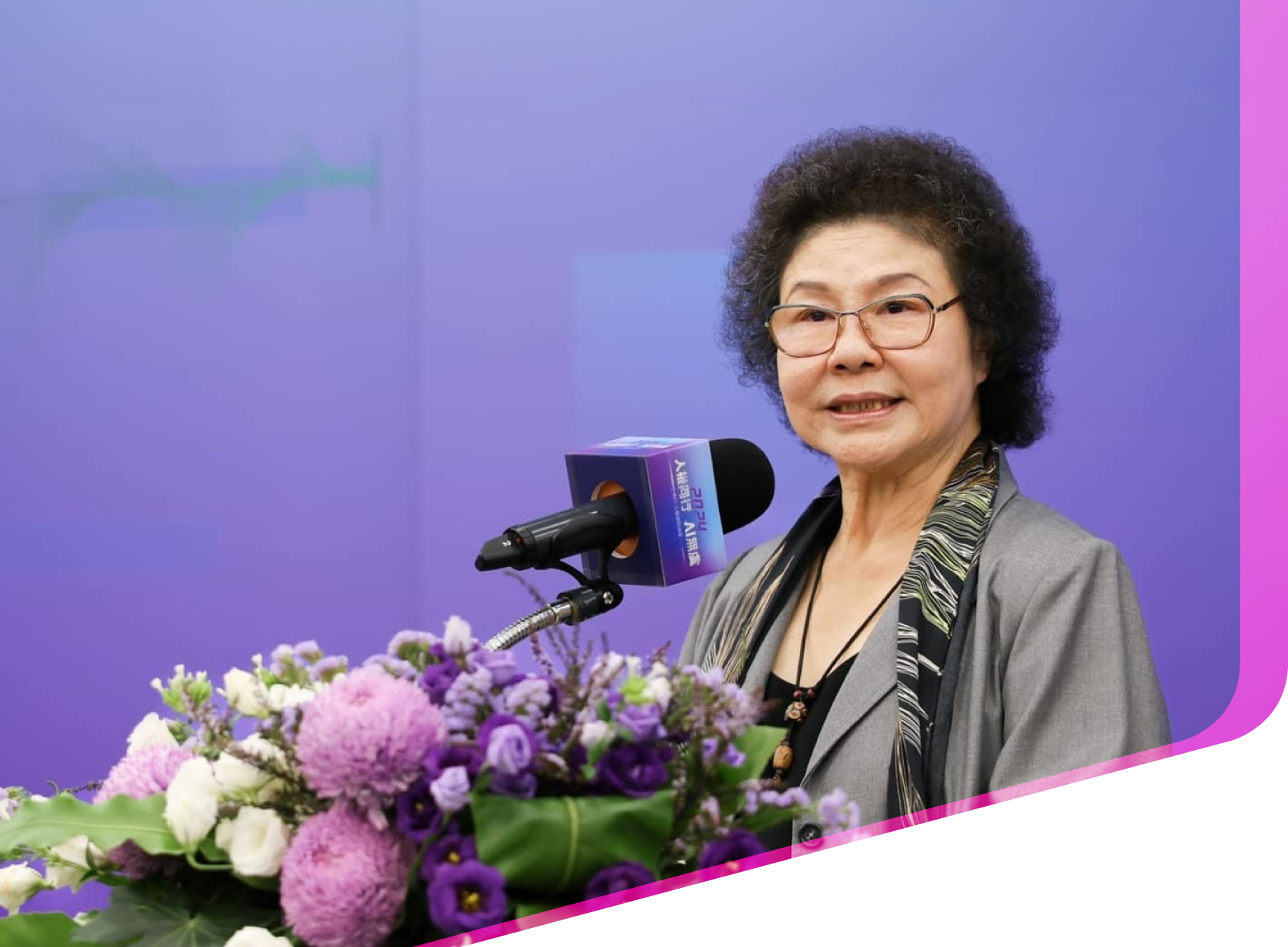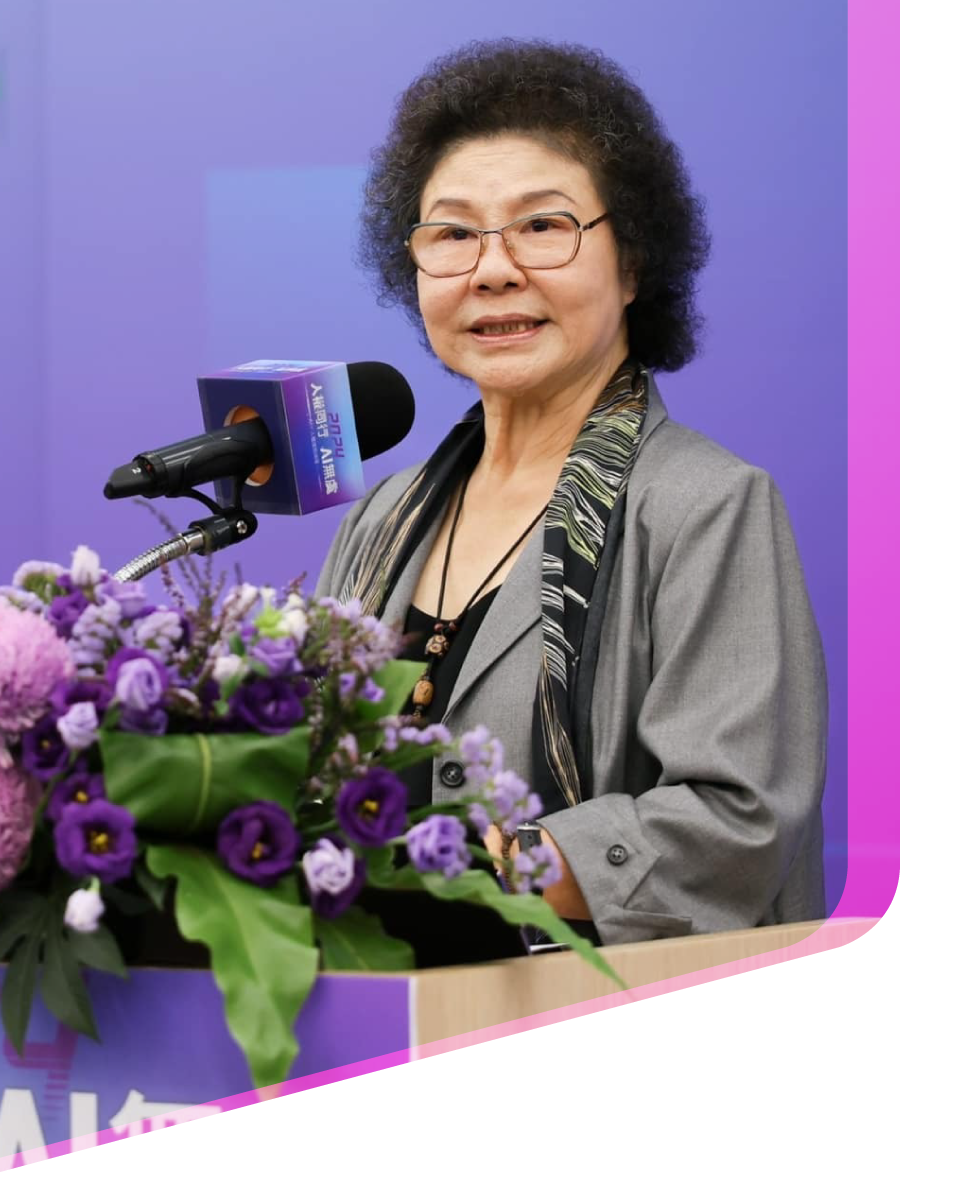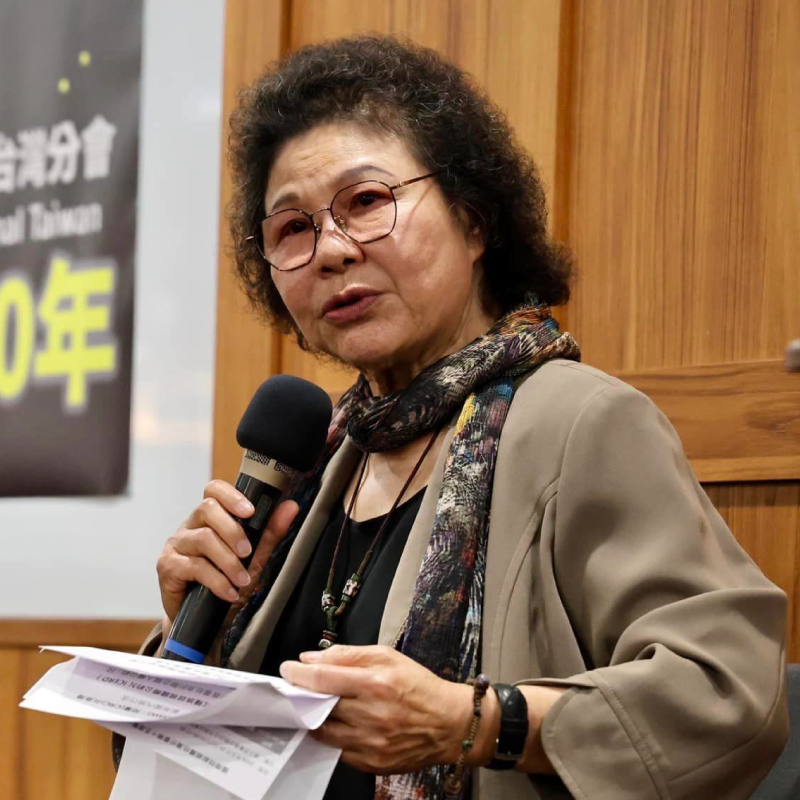
Taiwan
Taiwan
Taiwan
Chen Chu
Chen Chu
Chen Chu
President of the Control Yuan and Chairman of the National Human Rights Committee in Taiwan
President of the Control Yuan and Chairman of the National Human Rights Committee in Taiwan
President of the Control Yuan and Chairman of the National Human Rights Committee in Taiwan

Taiwan
Chen Chu
President of the Control Yuan and Chairman of the National Human Rights Committee in Taiwan
“Authoritarianism and totalitarianism remain a threat to our democracy, and the fight against them continues unchanged.”

VITA
Chu Chen is President of the Control Yuan and Chairman of the National Human Rights Committee in Taiwan. She has been a pivotal figure in Taiwan's democratization. For her advocacy of democracy, she was imprisoned for over six years and even sentenced to death. Later, she later became a prominent leader in the Democratic Progressive Party (DPP), uniting its members towards a common goal. In 2000, she served as the Minister of the Labor Council in the Executive Yuan. Moreover, in 2010, she was elected Mayor of Kaohsiung City and appointed Secretary-General to the President in 2018. Today, she continues to tirelessly advocate for human rights and democracy both in Taiwan and globally.
In your fight for democracy, you spent six years in prison and were even sentenced to death. Could you tell us about those experiences?
On June 23, 1977, the Kuomintang (KMT) government arrested me for the first time. At that time, Father Ronald J. Boccieri, a New York Catholic Church priest, sheltered and protected me for a week at the Loucuo Church in Taipei, telling me: “God will protect you. You must be strong.” In 1978, while being pursued by the Taiwan Garrison Command and intelligence services for collecting lists of political criminals and reporting on the democratic movement, I hid again at the Church in Changhua. I was eventually captured and Father Boccieri was unable to return from New York to Taiwan. We did not reunite until 1987 in New York. Moreover, on Human Rights Day, December 10, 1979, Formosa Magazine held a parade in Kaohsiung, prompting the KMT to launch large-scale arrests. This "Formosa Magazine Incident" significantly affected Taiwan’s democratic development. Over a hundred people were arrested, with eight facing treason charges carrying the death penalty, including Annette Lu Hsiu-lien, the magazine's deputy publisher and future Vice President of Taiwan. After my arrest, I endured ten days of continuous interrogation, including a grueling 72-hour session, during which I was slapped, verbally abused, and forced to write my last words. Despite these abuses, I refused to confess, maintaining that pursuing democracy was not a crime. To secure my release, Amnesty International (AI) established the 1224 Taskforce and wrote thousands of letters to American lawmakers and Catholic organizations, drawing their attention to the military trial in Taiwan. Throughout the six years of my imprisonment, AI never once gave up on rescuing me. Ultimately, through these efforts, I was released from prison. I had no prior connection with AI, but they selflessly did everything they could for me, solely based on our shared belief in human rights. This profoundly touched and motivated me, reinforcing my commitment to dedicating my life to human rights work.
What kept you strong and hopeful during those times?
The belief that the steps of democracy would not stop because of the threats of an authoritarian regime kept me strong and hopeful. As long as we persisted on, those who fought for democracy and protected human rights would never be alone; and our cries against authoritarianism would eventually take down the high walls.
What do you consider your greatest achievement in promoting human rights and democracy?
In my journey to promote human rights and democracy, I consider my greatest achievement to be my role in facilitating the transition of Taiwan from authoritarian rule to a thriving democracy. Throughout my ten years at Mr. Kuo Yu-hsin’s office, I had the privilege of connecting with key opposition figures such as Lei Chen, Wu San-lien, and others, and acted as a vital link among various generations of Tangwai activists. My proudest accomplishment is witnessing Taiwan emerge from the shadow of martial law to embrace democracy, freedom, and human rights. I played a key role in advocating for these values and helped establish the National Human Rights Commission, a milestone that took over twenty years of effort. This commission is crucial for nurturing and evolving the concept of human rights in Taiwan. Despite facing personal challenges and defamation, my steadfast belief in democratic principles and the resilience of the younger generation have driven my commitment.

What have been the major factors in Taiwan’s achievements of democracy and respect for human rights?
Taiwan’s achievements in democracy and human rights can be attributed to several key factors. First, the active participation and concern of the public, especially the younger generation, have been crucial. Their engagement provided the flexibility and resilience needed to advance and promote democratic values and human rights both domestically and internationally. Second, the evolving concept of human rights highlights that this pursuit is a continuous, multi-generational effort. The establishment and work of the National Human Rights Commission are central to this ongoing mission. It plays a vital role in deepening the understanding and integration of human rights into Taiwanese society. Lastly, the collective efforts to build on the legacy of previous human rights advocates ensure that these values are nurtured and strengthened over time, laying a solid foundation for future progress.
What do you see currently as the greatest danger to the Taiwan’s democracy?
Authoritarianism and totalitarianism remain a threat to our democracy, and the fight against them continues unchanged. Although Taiwan has lifted martial laws and begun its journey toward democracy, external threats persist. For years, Taiwan has faced propaganda and intimidation from authoritarian forces, including the constant intrusion of fighter jets and warships, along with a flood of disinformation that undermines the hard-earned freedom of speech gained after 38 years of authoritarian rule. Democracy, freedom, and human rights offer Taiwan opportunities to engage in international affairs and display its achievements on the global stage. As Confucius said, “Virtue is not left to stand alone. People who practice it will have neighbors.” Democracy, freedom, and human rights are universal values and the shared language of the world. As long as Taiwan continues on this path, we have nothing to fear.
What message would you give to the younger generation?
My message to the young generation is clear: continue to fight for these hard-won freedoms, as they are the fruits of relentless effort and sacrifice. Please remember your own beliefs as a Taiwanese kid. Remember the direction and future you are supposed to have. We have fought together for fifty years to get this ballot in return, and today, this ballot will determine Taiwan’s future. Let’s go vote and protect Taiwan together. The future is in your hands now. As once Cheng Nan-jung, Taiwanese democracy and human rights advocate, said, “The rest is in your hands.” Democracy, freedom and human rights deserve our protection through generations. This path is hard, but you are not alone. Fight on!
Taiwan
